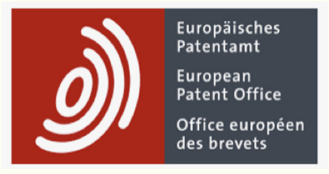The Need for an Injunction in Cases Where the EPO Proceeding is a Pending Issue

Although there is no explicit provision in Turkish Law for the acceptance of the ongoing opposition or appeal proceedings before the European Patent Office (“EPO”) as a “pending issue”, in practice due to the principle of procedural economy, pending issue decisions may be given by the Civil Courts of Intellectual and Industrial Property Rights on a case by case basis. As Turkey is party to the European Patent Convention, upon the issuance of a revocation decision regarding a European patent, the patent’s validation before TÜRKPATENT is also revoked. Therefore, the revocation decisions rendered by the EPO are binding for Turkey. In addition, based on the principle of procedural economy set out in Article 30 of the Code of Civil Procedure (“CCP”), which governs the proceedings, and taking into account that EPO decisions are also binding and that the EPO may revoke the patent, it may be decided to postpone the proceedings before the national court to avoid unnecessary burdening of the judicial system. Since there is no specific provision in Turkish law on the obligation to regard EPO proceedings as a pending issue, the courts decide by considering the stage of the EPO proceedings, the type of the action, and the balance of interests among the parties.
Considering the length of EPO proceedings, it is necessary to consider the balance of interests among the parties in this process. In this context, if there is a request from the parties, it is essential to decide on provisional legal protection measures to prevent the damages that may arise due to the duration of the proceedings. Especially so considering that the patent protection period is limited to 20 years and that there is no regulation extending this period in Turkish Law.
Indeed, the Regional Court of Appeal issued a precedent-setting decision emphasizing this importance. In an infringement and counter-invalidation action, the court of first instance decided to wait for the outcome of the EPO appeal process because the opposition process regarding the EPO patent had been concluded, but the appeal proceedings were still ongoing. The court rejected the preliminary injunction request filed by the patentee to compensate for the loss of rights during the waiting for the EPO decision because the EPO appeal and objection processes directly concerned the infringement action, and the infringement action would affect the decision of the court. The patentee appealed this decision which was found unfair and unlawful on the grounds that the EPO appeal proceedings were concluded in favor of the patentee, the experts appointed by the court determined the patent infringement, the patent protection period is limited, and cannot be extended. There is no need to wait for this process to issue an injunction.
The District Court, deeming the plaintiff’s requests appropriate, ruled that “Although it is understood that the request for a preliminary injunction was rejected due to the pending EPO appeal proceedings, deeming the process a pending matter does not constitute an obstacle for the evaluation of the request for a preliminary injunction.” Accordingly, the District Court revoked the decision of the court of first instance, noting that the request for a preliminary injunction should be evaluated while waiting for the conclusion of the EPO appeal proceedings to protect the balance of interests among the parties.
This decision has once again emphasized the purpose of the preliminary injunction to prevent the emergence of damages that occur during the trial that are difficult or impossible to compensate for later on. Furthermore, this decision makes it clear that the requests for a preliminary injunction should be decided on a priority basis to protect the patent rights of patentees in an effective and timely manner; deeming the EPO process a pending issue should not be an obstacle to the consideration of preliminary injunction requests. This decision sets an example for cases where the conclusion of the EPO opposition and appeal process is awaited to prevent the parties from losing their rights, potentially for years in prolonged cases.


